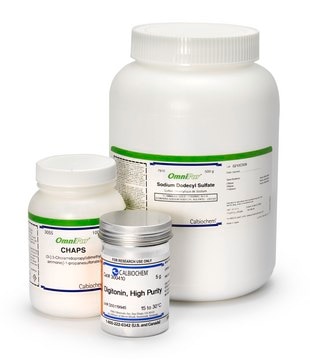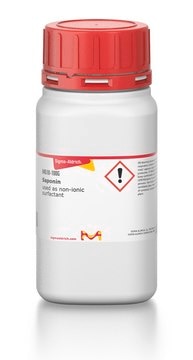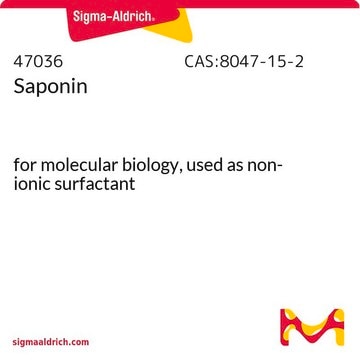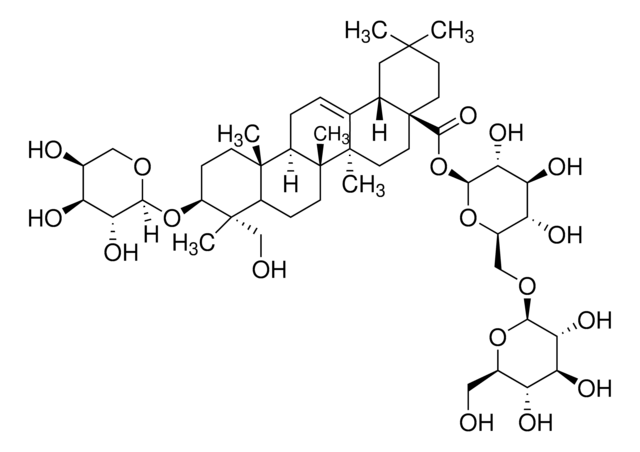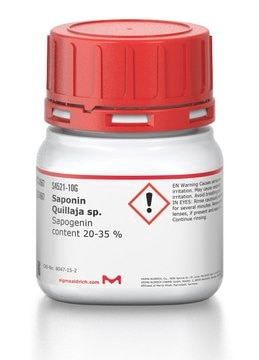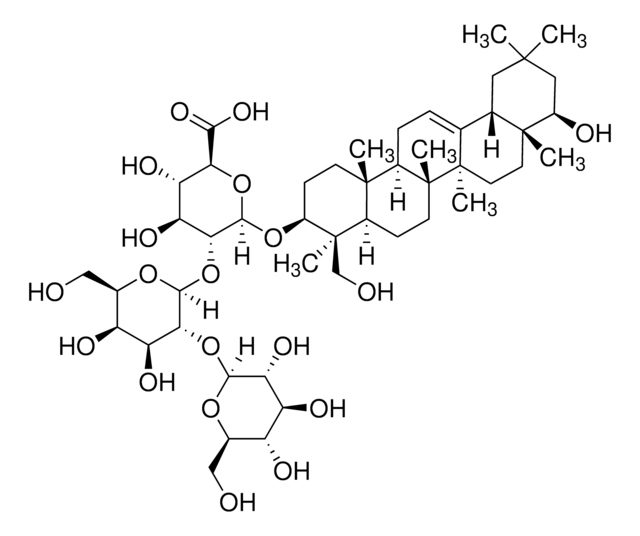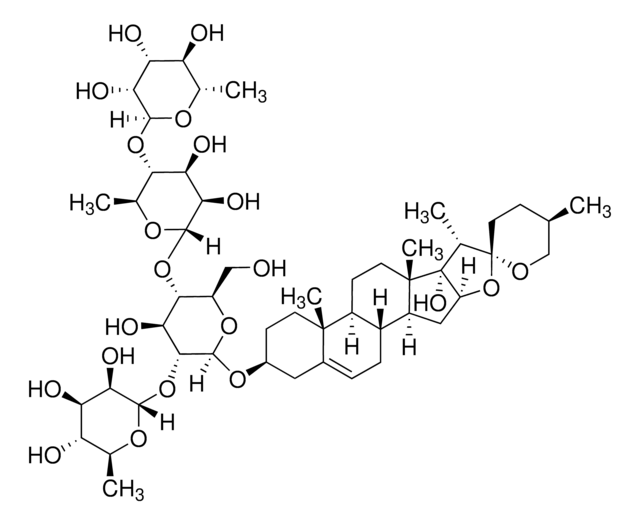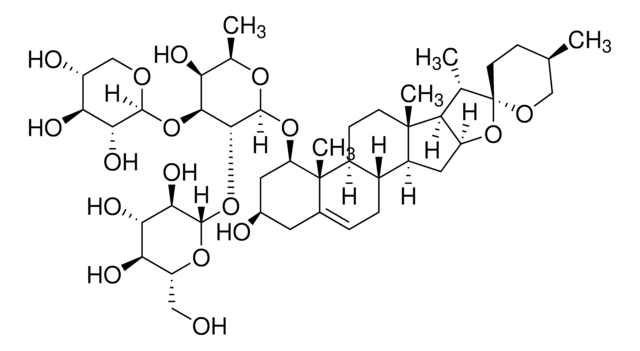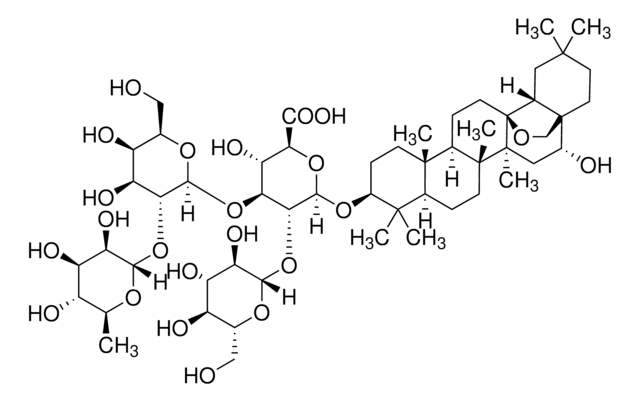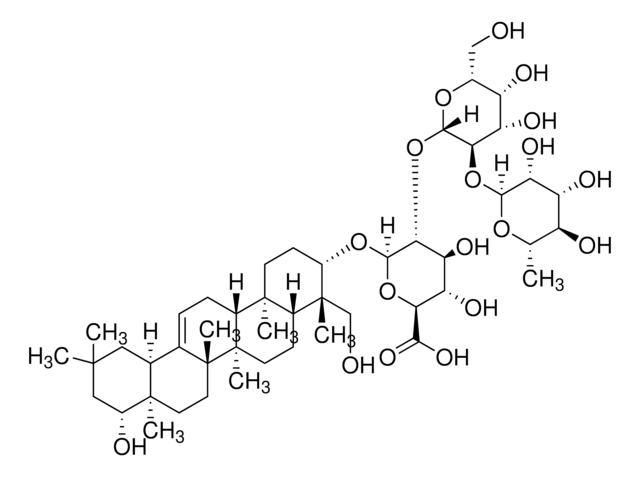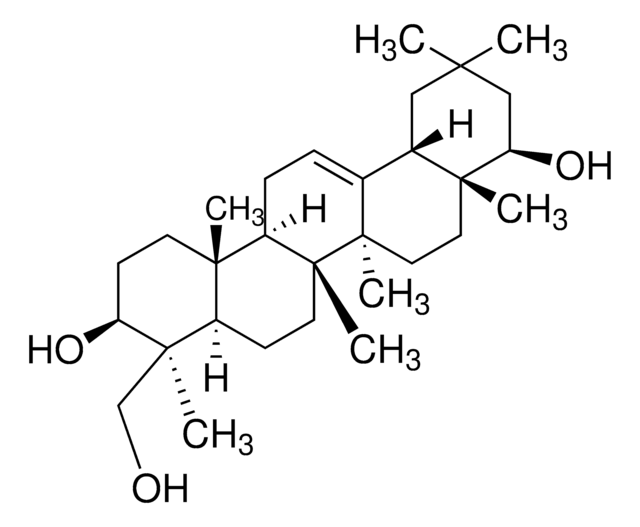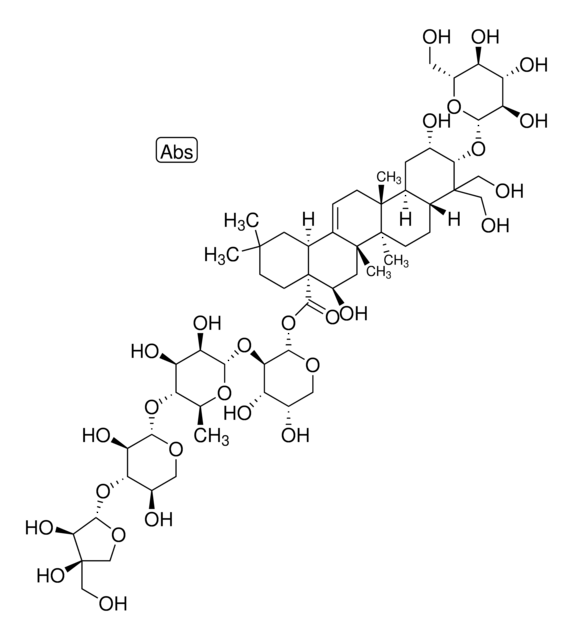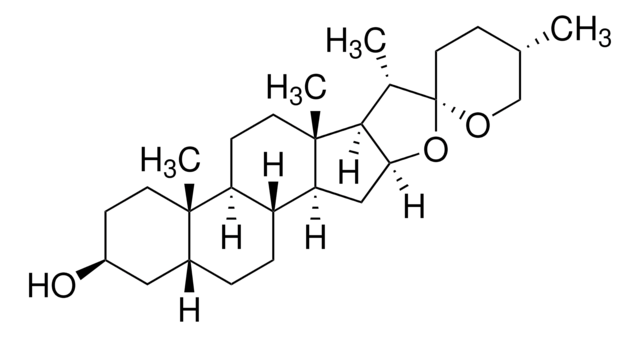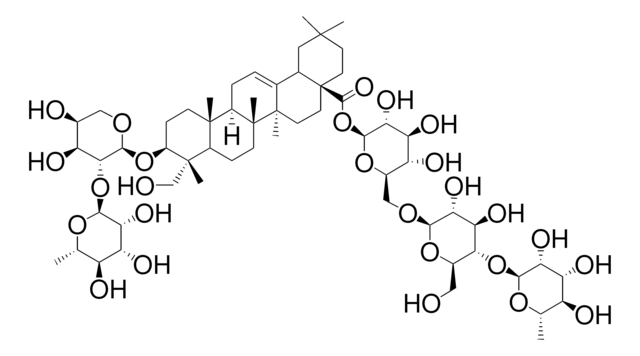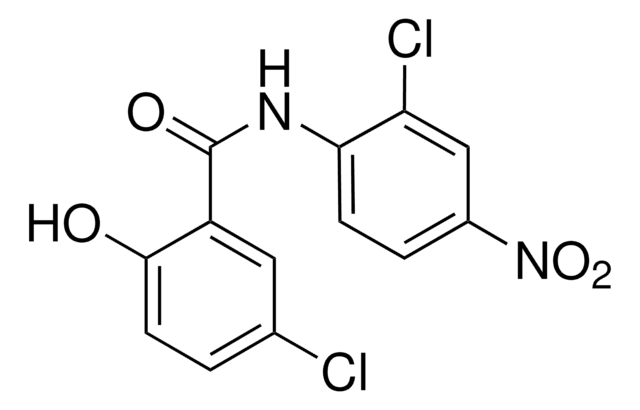SML1822
Akebia saponin D
≥98% (HPLC)
Synonym(s):
3-O-α-L-arabinopyranosyl hederagenin-28-β-D-glucopyranoside-(1→6)-β-D-glucopyranoside, ASD, Asperosaponin VI, Leiyemudanoside A, Tauroside St-G0-1
About This Item
Recommended Products
biological source
(Dipsacus asper)
Quality Level
assay
≥98% (HPLC)
form
powder
optical activity
[α]/D +13 to +18°, c = 0.5 in methanol
storage condition
desiccated
color
white to beige
solubility
H2O: 3 mg/mL, clear (warmed)
shipped in
wet ice
storage temp.
−20°C
SMILES string
CC1(C)CC[C@]2(C(O[C@@H]3O[C@H](CO[C@@H]4O[C@H](CO)[C@@H](O)[C@H](O)[C@H]4O)[C@@H](O)[C@H](O)[C@H]3O)=O)CC[C@@]5(C)[C@]6(C)CCC7[C@](C)(CO)[C@@H](O[C@]8([H])OC[C@H](O)[C@H](O)[C@H]8O)CC[C@]7(C)[C@@]6([H])CC=C5[C@]2([H])C1
InChI
1S/C47H76O18/c1-42(2)13-15-47(41(59)65-40-37(58)34(55)32(53)26(63-40)20-61-38-36(57)33(54)31(52)25(18-48)62-38)16-14-45(5)22(23(47)17-42)7-8-28-43(3)11-10-29(64-39-35(56)30(51)24(50)19-60-39)44(4,21-49)27(43)9-12-46(28,45)6/h7,23-40,48-58H,8-21H2,1-6H3/t23-,24-,25+,26+,27+,28+,29-,30-,31+,32+,33-,34-,35+,36+,37+,38+,39-,40-,43-,44-,45+,46+,47-/m0/s1
InChI key
CCRXMHCQWYVXTE-HMRSNRLKSA-N
Looking for similar products? Visit Product Comparison Guide
Biochem/physiol Actions
Storage Class
11 - Combustible Solids
wgk_germany
WGK 3
flash_point_f
Not applicable
flash_point_c
Not applicable
Certificates of Analysis (COA)
Search for Certificates of Analysis (COA) by entering the products Lot/Batch Number. Lot and Batch Numbers can be found on a product’s label following the words ‘Lot’ or ‘Batch’.
Already Own This Product?
Find documentation for the products that you have recently purchased in the Document Library.
Customers Also Viewed
Our team of scientists has experience in all areas of research including Life Science, Material Science, Chemical Synthesis, Chromatography, Analytical and many others.
Contact Technical Service